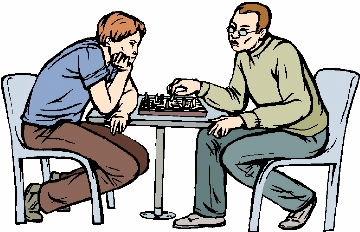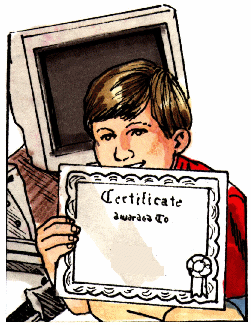
|
One thing you can do, if you haven't already done so, is join a CHESS CLUB.
Maybe you already play in a chess club in school.
Well, that's great, but if you join a chess club OUTSIDE school you'll make a lot of new friends who share your interest in chess.
You'll also meet a lot of different players rather than playing the same opponents every week, so, although schools are great places to START chess, if you want to get the most out of the game you need to play OUTSIDE school as well.

|



